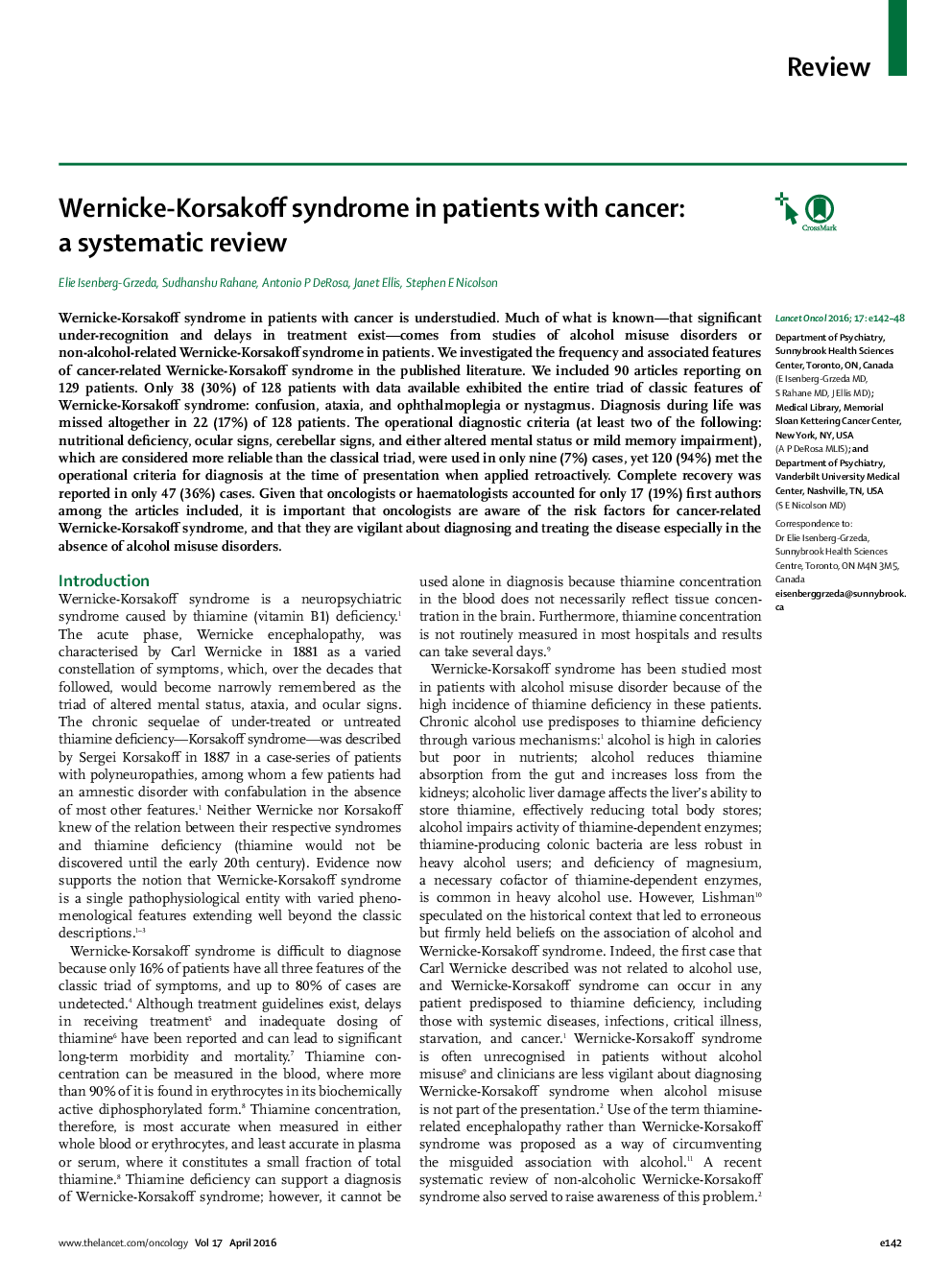| Article ID | Journal | Published Year | Pages | File Type |
|---|---|---|---|---|
| 3993292 | The Lancet Oncology | 2016 | 7 Pages |
SummaryWernicke-Korsakoff syndrome in patients with cancer is understudied. Much of what is known—that significant under-recognition and delays in treatment exist—comes from studies of alcohol misuse disorders or non-alcohol-related Wernicke-Korsakoff syndrome in patients. We investigated the frequency and associated features of cancer-related Wernicke-Korsakoff syndrome in the published literature. We included 90 articles reporting on 129 patients. Only 38 (30%) of 128 patients with data available exhibited the entire triad of classic features of Wernicke-Korsakoff syndrome: confusion, ataxia, and ophthalmoplegia or nystagmus. Diagnosis during life was missed altogether in 22 (17%) of 128 patients. The operational diagnostic criteria (at least two of the following: nutritional deficiency, ocular signs, cerebellar signs, and either altered mental status or mild memory impairment), which are considered more reliable than the classical triad, were used in only nine (7%) cases, yet 120 (94%) met the operational criteria for diagnosis at the time of presentation when applied retroactively. Complete recovery was reported in only 47 (36%) cases. Given that oncologists or haematologists accounted for only 17 (19%) first authors among the articles included, it is important that oncologists are aware of the risk factors for cancer-related Wernicke-Korsakoff syndrome, and that they are vigilant about diagnosing and treating the disease especially in the absence of alcohol misuse disorders.
